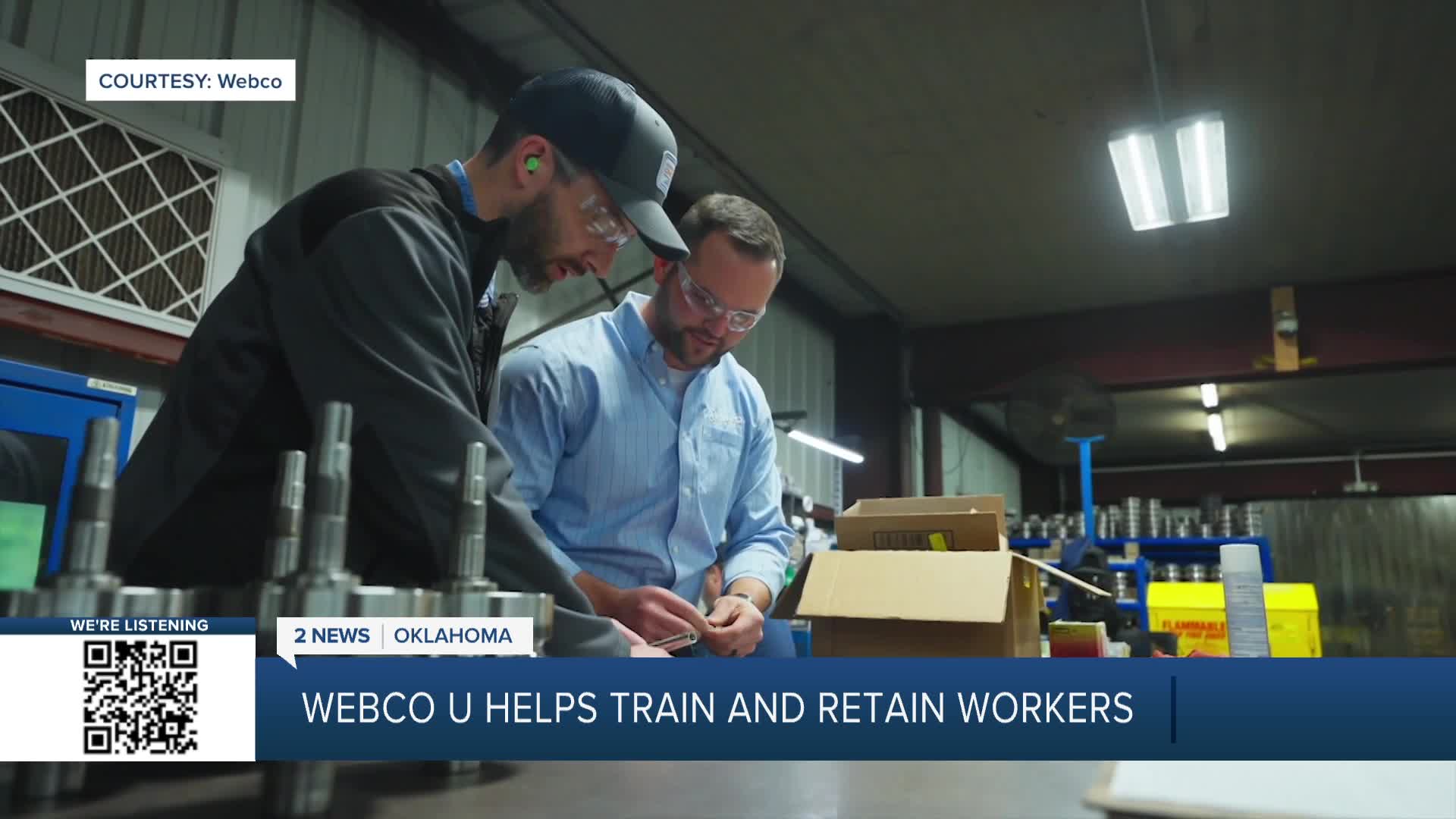SAND SPRINGS, Okla. — Even if you're not familiar with this Sand Springs-based company's name, its products are an integral part of your life.
"There's not a person probably in Tulsa or probably in the United States that doesn't touch a Webco product on a daily basis," said Jene Harmon, Webco vice president of strategy and marketing.
Webco makes high-quality tubing products used in everything from cars to mining, oil and gas production, and specialty manufacturing.
To maintain its competitive edge, the company has developed an innovative approach to growing its workforce, a time when many manufacturers struggle to find and retain workers.
Company training program builds careers from ground up

"I've been here now for two years and I'm on the inside sales team and I sell stainless tubing," Kamyn Hammond said.
When Hammond joined Webco, he had no prior experience in manufacturing. Like all employees since 2011, he went through Webco-U, the company's in-house training system designed to grow a workforce from the ground up.
It begins with boot camp.
"So boot camp would be half a day for the first half and then the second half I'd be training on the shop floor, so I'd get the coursework the first half and the second half I'd actually get hands-on training," Hammond said.
From the manufacturing floor, he worked his way up to sales, thanks in part to the training provided by Webco-U.
Hammond's career goals align with many of Webco's 1,500 workers.
"I'm looking for a lifetime career here," he said.
High retention rates set the company apart
That sentiment isn't unusual at Webco. The average employee has been with the company for 10 years, and 97% of senior staff members have advanced through its ranks.
Webco-U both trains employees and prepares them for advancement. To expand opportunities, the company is moving it training operation into an 18,000-square-foot facility.

"And it's really kind of the next step anyway for us to be able to provide our employees with an opportunity to do all that they can do based upon their individual talents and strengths," Harmon said. "There's a lot of automation, there's a lot of equipment that requires more of a technical skill set to be able to come in and be successful, and so we assume that people are coming to the workforce necessarily hasn't run a machine or, you know, operated a crane and did some things that are really important and at the same time be able to do that safely."

Virtual reality enhances safety training
Part of the training involves virtual reality technology, allowing people to learn to use forklifts, scissor lifts, cranes, and other heavy equipment without actually operating the machinery. This approach prioritizes safety while taking advantage of the latest technology to help train employees who see the company as a "forever" place to work.
"This story was reported on-air by a journalist and has been converted to this platform with the assistance of AI. Our editorial team verifies all reporting on all platforms for fairness and accuracy."
Stay in touch with us anytime, anywhere --
- Download our free app for Apple, Android and Kindle devices.
- Sign up for daily newsletters emailed to you
- Like us on Facebook
- Follow us on Instagram
- Watch LIVE 24/7 on YouTube





